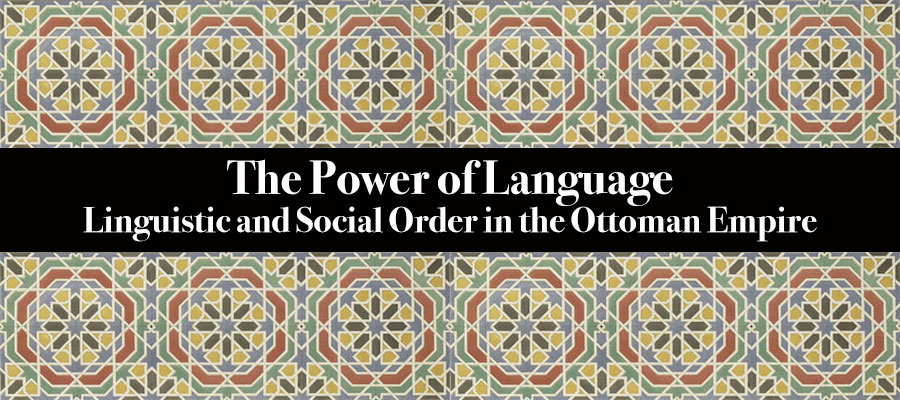The Power of Language: Linguistic and Social Order in the Ottoman Empire, session at the 3rd European Convention on Turkic, Ottoman & Turkish Studies, University of Bamberg, September 19–21, 2018
It is often claimed that in the Ottoman Empire educated elites seamlessly blended the “three tongues”—Persian for poetry, Arabic for religion, and Turkish for politics—into the syncretic “Ottoman” language. Yet this tale of a neat division of labor between three languages, each co-existing harmoniously, smooths over the linguistic texture and variety historically found in the empire. Moreover, focusing solely on the aforementioned trifecta often erases the experiences of non-Muslim subjects. So far, the attention and care that has been shown toward questions of intercultural communication across the opposing shores of the Mediterranean has not necessarily been extended to the linguistic diversity found along the sea’s eastern reaches. This panel aims to understand the multiple languages of the Ottoman Empire not as neutral tools, but as significant social and cultural forces that shaped, in myriad and unexpected ways, the empire’s religious, political, and intellectual landscape.
We invite scholars to submit papers that focus on the agency of language in the Ottoman Empire, with a strong emphasis on the connection between linguistic and social order. We seek contributions that integrate historical research with theoretical and methodological considerations. The questions that we seek to investigate include, but are not limited to:
- What was the social and intellectual valence of the empire’s different languages? How did language function as a means of distinction and as a register of specific cultural and intellectual preference in the empire? (For example, did a choice of Persian or Arabic connote variant forms of religiosity?)
- How did language create social and political communities within and beyond the empire? What are the insights to be gained from studies of inter-imperial linguistic exchange?
- How were languages learned and taught? What kind of institutions or social practices did language training create? How did non-Muslims approach learning the Turkish or Arabic languages?
- How did vernaculars like Turkish or Slavic interact with literary languages like Arabic, Persian, Greek, or Armenian? How was linguistic variety within languages like Turkish, Arabic, or Greek conceived of by Ottoman subjects themselves?
- How were the linguistic sciences–such as rhetoric, grammar, and logic—adapted and used when confronted with the linguistic diversity of the empire?
- What was the social significance of script choice and writing modes within the empire?
We hope to include contributions from the full temporal scope of the Ottoman Empire, with a slight preference for the medieval and early modern periods.
Organizers
Aslıhan Gürbüzel, McGill University
Nir Shafir, UC San Diego
